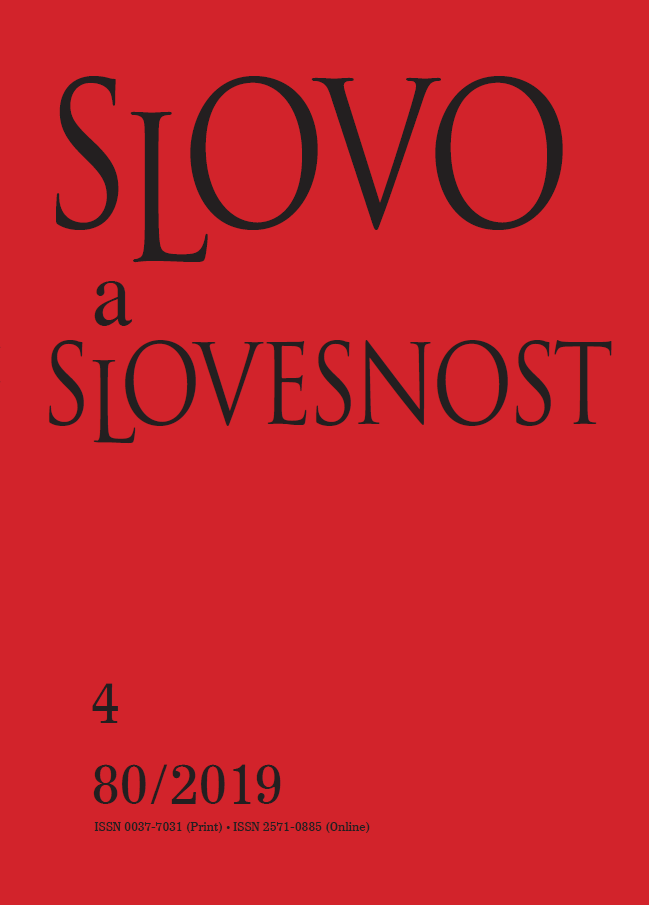Ohrožená komplexita: smíšené systémy perifrastického časování v některých italských dialektech
Endangered complexity: Mixed perfective auxiliation systems in some Italian dialects
Author(s): Pavel ŠtichauerSubject(s): Language studies
Published by: AV ČR - Akademie věd České republiky - Ústav pro jazyk český
Keywords: auxiliary selection; mixed paradigms; Italian dialects; morphological complexity; lexical approach; syntactic approach; morphological approach
Summary/Abstract: This paper deals with the typologically interesting phenomenon of mixed perfective auxiliation systems, attested in some of the Italo-Romance dialects. In these varieties, two auxiliary verbs, outcomes of the Latin HABERE and ESSE, alternate within one and the same paradigm, thus giving rise to mixed paradigms of different degrees of complexity. After a brief survey of the sociolinguistic situation in contemporary Italy, an overview of the different intraparadigmatic distributions of the two auxiliaries is given. This overview is divided into four main levels of differentiation: complete vs. partial systems; different modotemporal systems; systems with free variation of the two auxiliaries; and motivated vs. unmotivated distributions. I briefly describe three main approaches which have gained some currency in recent research: lexical, syntactic and morphological accounts which all attempt to explain this phenomenon by highlighting different aspects of the problem. In conclusion, the endangered status of these mixed paradigms is underlined as they are part of strictly local varieties probably deemed to disappear within a few generations.
Journal: Slovo a slovesnost
- Issue Year: 80/2019
- Issue No: 4
- Page Range: 285-305
- Page Count: 21
- Language: Czech

